Spanish Unit

Xosé Manuel Baamonde Silva
Universidad de Vigo
Xosé Manuel Baamonde Silva is an Associate Professor of Public Relations and, currently, the dean of the School of Social Sciences and Communication at the University of Vigo. He holds a bachelor’s degree in Journalism from the Complutense University of Madrid (1993) and a PhD on Communication Sciences from the University of Santiago de Compostela (2007). He is author of the dissertation thesis Fairs as spaces for professional communication: the case of the Feira Internacional de Galicia - Fundación Semana Verde 1995-2004 (University of Santiago de Compostela, 2008). Among his books are A communication in trade fair sector. Strategies of organizers, exhibitors and professional visitorsor The management of a single event. Centennial Chronicle, as well as numerous articles in national and international journals. His current fields of research are focused on Public Relations, Solidarity Communication and event organization. In a profesional context, he has worked in various national and regional media and participated in international conferences of the communication sector. And he also was the Communication Director of the Feira Internacional de Galicia (1994-2004) and Chief of Cabinet of the City of Ribeira (2005-2007).
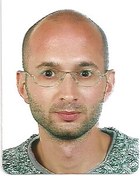
Pau Casanellas Peñalver
Universitat Autónoma de Barcelona
Research fellow at the NOVA School of Social Sciences and Humanities (NOVA FCSH, Lisbon), where he is part of the Institute of Contemporary History (IHC). He is also part-time lecturer at the Autonomous University of Barcelona (UAB), where he got his PhD in History. Likewise, he is associate of the Centre for the Study of Dictatorships and Democracies (CEDID UAB). He published Morir matando. El franquismo ante la práctica armada, 1968-1977 (Catarata, 2014), and, as co-author, Gobernadores. Barcelona en la España franquista (1939-1977) (Comares, 2015), as well as several journal articles, papers and chapters. He is a specialist on Francoist repression and Franco dictatorship, and has focussed especially on the 1960s and 1970s, working on subjects such as public order policies, social protests and armed struggle.

Xavier Domènech Sampere
Universitat Autónoma de Barcelona
Xavier Domènech Sampere is a lecturer of Contemporary History in the Department of Modern and Contemporary History at UAB. Initially my main line of research concentrated on the relationship between social movements and political change in Catalonia and Spain during the Franco dictatorship. This first line of research culminated in 2006 with the reading of my doctoral thesis “Pequeños grandes cambios. Movimiento obrero y cambio político en la década de los sesenta” [Great little changes: the labour movement and political change in the seventies]. I went on to further develop this thesis with the publication of several articles and reference books, as well as winning the special doctoral prize at the UAB and the City of Barcelona history award in 2006. Highlights among the publications resulting from my further development of this thesis include, among others, “Quan el carrer va deixar de ser seu” [When the street stopped being theirs] (Publicacions Abadia de Montserrat, 2002), “Clase obrera, antifranquismo y cambio político” [The working class, antifrancoism and political change] (La Catarata, 2008) and Movimiento y cambio politico (1939 – 1977)” [Labor movement and political change, 1939 - 1977] (Icaria, 2012), as well as different articles published in leading journals such as Història Social, Historia del Presente, Ayer, Spagna Contemporanea and Labor and Working-Class History.
Alongside this, I pursued new lines of research, focusing on the history and memory of the air raids during the Spanish Civil War and the development of memorial movements and policies, as well as in the field of exploring the formation of new identities among the working classes and militant cultures under Francoism. My lines of research have currently moved over to the comparative analysis of national dynamics in Spain. This research has already led to publications such as the book Un haz de naciones. El Estado y la plurinacionalidad en España [A Bundle of Nations: The State and Plurinationality in Spain] (1833 – 2017) (Península, 2020) and the creation of a research group.
I have also recently completed my previous line of research with the publication of Lucha de clases, franquismo y democracia (1939 - 1979) (Akal, 2022) [Class struggle, Francoism and democracy (1939 - 1979)”].
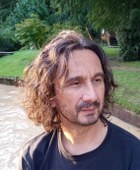
Ruy Farías
Universidad de Buenos Aires
Ruy Farías is a Professor of Secondary and Higher Education in History from the University of Buenos Aires (with Honours Diploma) and PhD in History from the University of Santiago de Compostela (with Extraordinary Doctorate Award).
He is an independent researcher in the Laboratory for Research in Human Sciences of the CONICET (National Council for Scientific and Technical Research), lecturer in the Bachelor's Degree in History and Academic Director of the Galicia-America Chair (both belonging to the National University of San Martin, Argentina). He is also a member of the Institutional Relations and External Action Commission of the Galician Culture Council, collaborator of the Laboratory of Immigration Studies (University of Rio de Janeiro State) and of the Research Group on the History of Politics and Nationalism (HISPONA, USC).
Specialist in Spanish migration and exile in Argentina, looking at aspects ranging from macro-structural to micro-social factors, and from indicators of integration to collective imaginaries, representations, cultural exchanges, etc.
Author of more than 30 articles in specialized and popular journals, as well as two dozen chapters in collective volumes. He has compiled or organized the books Aires galega (2010) y – with Érica Sarmiento– Novos olhares sobre a imigração ibérica em América Latina (ss. XIX-XX), of 2013. He is also coauthor of Los “gallegos” en el imaginario argentino. Literatura, sainete, prensa (2008, coauthored with María Rosa Lojo y Marina Guidotti de Sánchez) and – again with Érica Samiento – of Entre os trópicos e o Rio da Prata. Estudos comparados de imigração galega no Rio de Janeiro e em Buenos Aires (2022). Moreover is the author of La inmigración gallega en el Sur del Gran Buenos Aries, 1869-1960(2010).

David Formoso Vázquez
Universidad de Vigo
David Formoso-Vázquez is a journalist and associate professor at the University of Vigo. He holds a bachelor’s degree in Journalism at the Complutense University of Madrid and a PhD on Social Sciences at the University of Vigo. His main line of research is on communication and press history. Among his last works are (with Alberto Pena) the articles “The representation in the Spanish press from the discourse of President Theodore Roosevelt in defense of the construction of the Panama Canal” (Historia y Comunicación Social, 2017, http://dx.doi.org/10.5209/HICS.55899) and “The Spanish laborers in the building of the Panama Canal: their image in the Spanish press (1906-1909)” (Historia Crítica, 2018,https://dx.doi.org/10.7440/histcrit67.2018.02. In addition to his teaching and research activities, he worked as a journalist for 26 years in the Radio and Spanish Television (RTVE), 17 of which in positions of responsability. He also worked in the newspapers El País, La Voz de Galicia and El Correo Gallego. He has been awarded with the prize Mestre Mateo 2010 as the scriptwriter and producer of the documentaries Man, home sen paz and A catástrofe do Prestige, dous anos despois. He is also currently working as a media and communication consultant.

Steven Forti
Universitat Autónoma de Barcelona
With a PhD in History from the UAB and the Università di Bologna (2011), Steven Forti is currently a lecturer in Autonomous University of Barcelona (UAB) and a researcher at the Institute of Contemporary History (IHC) of the NOVA University of Lisbon. Forti’s investigations are oriented towards the political history and political thought of the XX and XXI century, with a particular focus on Europe in the interwar period, from the perspective of comparative and transnational history and biographical analysis. He has investigated the issue of the transition of political leaders and intellectuals from left-wing parties to fascism in Europe in the Twenties and Thirties, as well as the relationship between violence and consensus in fascist regimes, the relationship between class and nation and the new extreme rights. Member of the Editorial Staff of Spagna Contemporanea, Forti collaborates with several journals of contemporary history in Italy and Spain and several newspapers and magazines, with contributions on the political and cultural situation in Europe. Forti is a member of the Grup de Recerca sobre l’Epoca Franquista (GREF), el Centre d’Estudis sobre Dictadures i Democràcies (CEDID); the European Network on Theory and Practice of Biography (ENTPB); the Rede Internacional de Estudo do Corporativismo e da Organização de Interesses (NETCOR) and the Rede de Estudo dos Fascismos, Autoritarismos, Totalitarismos e Transições para Democracia (REFAT). His last books are El peso de la nación. Nicola Bombacci, Paul Marion y Óscar Pérez Solís en la Europa de entreguerras (USC, 2014); El proceso separatista en Cataluña. Análisis de un pasado reciente (2006-2017) (with Arnau Gonzàlez i Vilalta and Enric Ucelay-Da Cal (Eds.), Comares, 2017); and Patriotas indignados. Sobre la nueva ultraderecha en la Posguerra Fría (with Francisco Veiga, Carlos González Villa and Alfredo Sasso, Alianza Editorial, 2019).
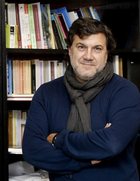
Emilio Grandío Seoane
Universidad de Santiago de Compostela
Senior Lecturer in Contemporary History at the University of Santiago de Compostela since 2003 and Coordinator of the Interuniversity Master's Degree in Contemporary History (2012-2018). He has a PhD in History in 1995 with the thesis ‘La CEDA in Galicia 1931-1936’. His priority lines of research cover political and social history from the Second Republic to the democratic transition, fascist and right-conservative movements.
He has directed and coordinated various national and international research projects, funded by the Ministry of the Presidency and MINECO. Also those funded by the Provincial Council of A Coruña on the repression of civil war in the province of A Coruña (2004-2006), political partner conflict in the Second Republic (2006-2008), and the latter on the institutional repression in the province of A Coruña (2016 -2017). Between 2006 and 2012, he was Coordinator of the interuniversity project (Universities of Santiago de Compostela, A Coruña and Vigo) "The victims, the names, the voices and the places", pioneer in the studies on the repression of the Civil War. He currently heads the USC HISPONA Research Group (Political History and Nationalism), a group that participates in various projects and organizes national and international seminars. He also coordinated EUCODE Groups, in charge of seven Spanish universities, to develop a European Project on 'The culture of fascism / anti-fascism in the construction of democratic transition processes' (2015-2017); and the RETTDES Network of Excellence (2015-2017).
Participant in different tables of Congresses and Seminars, and coordinator of numerous monographs and dossiers. His books include: History of A Coruña (19th and 20th centuries); The republicanism coruñes in the History (1997); Years of war. A Coruña, 1936-1939 (1999); Caciquism and elections in Galicia of the Second Republic (1999); The Brandariz Report (A Coruña, 1937) (2001); Casares Quiroga. Parliamentary Speeches (2006), Casares Quiroga. The Forge of a Leader (2011); Watched (2011), War Zone. World War II in the northwest of the Iberian Peninsula (2012) ...
Member of the Board of Staff of the Association of Historians of the Present, among his latest works, mention: (2015) the coordination of the Dossier Magazine History of the Present on the transition in Galicia with the article 'The machinery of the transition: the UCD in Galicia'; (2015) 'The light that marked the way: the reconstitution of the PSOE in Galicia', History of the Present 26; (2017) The Balancing Act: British Intellgence during the IIWW in Spain, Sussex Academic Press; (2017) 'Francoism and opposition in the 1950s: narratives of national reconciliation' in Morente / Gallego, The Last Survivor, Sussex Academic Press; (2017) Commitment to democracy. Life story of Salvador de Madariaga; and (2017) 'On the democratic transition and the 21st century: New ways, new formulas', Studia Histórica Contemporánea Contemporánea, 35.
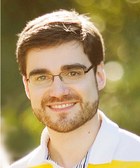
Alfonso Iglesias Amorim
Universidad de Santiago de Compostela
Alfonso Iglesias Amorin (Santiago de Compostela, 1983), holds a PhD in History from the University of Santiago de Compostela (2014) with the thesis La memoria de las guerras de Marruecos en España (1859-1936), with which he obtained the Extraordinary PhD Award (2017). His main lines of research are military conflicts, with special attention to those derived from Spanish colonialism in Modern times; memory and nationalisms. He is the author of the books Imagen y repercusiones de la Guerra de Cuba en Galicia (1895-1898), I Juana de Vega Prize for new researchers; A Galicia da II República (Santiago, 2010); and co-author of Historia de Santiago de Compostela (Santiago, 2012) and Xeración Perdida Coruña 36 (A Coruña, 2018). He has also made articles for scientific journals such as Hispanic Research Journal or Pasado y Memoria, and multiple chapters in collective works. Between 2009 and 2013 he enjoyed a FPU scholarship by the Ministry of Education and Science, and between 2012 and 2013 he enjoyed a research stay at the Centre for War Studies of Trinity College Dublin. Since 2016 he is a postdoctoral researcher (I2C Plan of the Xunta de Galicia) at the University of Porto and University of Santiago de Compostela.

Martí Marín Corbera
Universitat Autónoma de Barcelona
Professor of the Departament d’Història Moderna i Contemporànea of the UAB since 1994, Senior lecturer since 2010 and Secretary of the departament since 2016. Director of the Centre d'Estudis sobre Dictadures i Democràcies (CEDID-UAB) since 2016. His lines of research have focused on the institutional deployment of the system of government of the Franco regime, along with the analysis of its political personnel and policies towards migration, in the same period, as well as their complementary actions for control and identification of people.
Books: Els Ajuntaments Franquistes a Catalunya. Política i administració municipal, 1938-1979, Lleida, 2000; Catalanisme, clientelisme i franquisme. Josep Maria de Porcioles, Barcelona, 2000 i 2005 [revisada]; Història del Franquisme a Catalunya, Vic-Lleida, 2006; [amb Manel Risques] Montjuïc, memòries en conflicte: el castell, la muntanya i la ciutat, Barcelona, 2008; [amb Javier Tébar, Manel Risques i Pau Casanellas] Gobernadores. Barcelona en la España Franquista (1939-1977), Granada, 2015; Franquisme, suburbialització i dictadura a Catalunya. Sabadell, 1939-1962: una cas paradigmàtic, Sabadell, 2019 y ¡Ha llegado España! La política del franquisme a Catalunya (1938-1977), Vic, 2019.
Main academic journals where he has published: Recerques. Història, Economia, Cultura (Barcelona, 1995 and 2009); Hispania (Madrid, 1998); Estudis d'història agrària (Barcelona, 2004), Historia social (València, 2006); Historia y Política (Madrid, 2013); Franquisme & Transició (Barcelona, 2013); Les langues néo-latines (París, 2015); Spagna Contemporanea (Alessandria, 2015) i Estudos do Século XX (Coimbra, 2016).
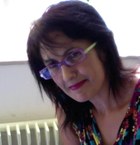
Maria Victoria Martins Rodríguez
Universidad Complutense de Madrid
María Victoria Martins Rodríguez studied Geography and History at the Universidad Complutense and MA at University of Vigo. She is currently writing her dissertation thesis on the image of Galician women in the NO-DO (the audiovisual propaganda apparatus of Francoism) at the Complutense University of Madrid. Currently working as a secondary school teacher, she has been editor, researcher and university professor in several periods. Her lines of research are centred on the history of women, with various publications on the Sección Femenina of Falange, the Franco's repression, education and the world of labour among other issues.
Among his main works are A Regresión Franquista. A muller durante o primeiro franquismo. Sección Femenina en Ponteareas (1936-1955) (University of Vigo, 2012); “Sección Femenina: modelos de mujer bajo el franquismo” (in Osborne, Raquel: Mujeres bajo sospecha: Memoria y Sexualidad (1930-1980), Síntesis, 2012); “Las mujeres gallegas y las prisiones franquistas” (in Egido, Angeles: Cárceles de mujeres: la prisión femenina en la posguerra, Sanz and Torres, 2017); “The incorporation of women in the agricultural trade union struggle: The case of the Galician Peasants: Union Labrego Galego (SLG) Union”, in International Labor and Working-Class History (co-author) (pending publication). She is also co-director of the documentary Digna Rabia (2011), focused on the history of women during the dictatorship.

Carme Molinero
Universitat Autónoma de Barcelona
Carme Molinero is professor of Contemporary History in the Department of Modern and Contemporary History at UAB. From 2002 to 2009 she was the coordinator of the Research Group on Francoist Era (Grup de Recerca sobre l’Època Franquista, GREF), officially approved and funded by the Catalan government. GREF is a member group of CEDID, a UAB Study and Research Center that was also under the direction of Carme Molinero from 2001 to 2006 and from 2011 to 2017. Her research has focused on the social and political history of the Francoist period and the transition from dictatorship to democracy in Spain. She is the author of La captación de las masas. Política social y propaganda en el régimen franquista, Cátedra, 2005, and, in collaboration with Pere Ysàs, of “Patria, Justicia i Pan”. Nivell de vida i condicions de treball a Catalunya 1939-1951 (1985); Els industrials catalans durant el franquisme (1991); El règim franquista. Feixisme, modernització i consens (1992, new edition 2003); Productores disciplinados y minorías subversivas. Clase obrera i conflictividad laboral en la España franquista (1998); La anatomía del franquismo. De la supervivencia a la agonía (1945-1977) (2008); Els anys del PSUC. El partit de l’antifranquisme (1956-1981) (2010); Catalunya en la Transición española (2014); De la hegemonía a la autodestrucción. El Partido Comunista de España (1956-1982) (2017) and La Transición. Historia y relatos (2018). Some of her works as editor are the following books: Una inmensa prisión. Los campos de concentración y las prisiones durante la guerra civil y el franquismo (2003, new edition 2006); Nou Estat, nova política, nou ordre social (2005); La transición, treinta años después (2006); She has collaborated on more than 90 collective works, among the most recent: Fascismo/i e Resistenza (2015); Ditaduras e revolução. Democracia e políticas da memòria (2015); Getting it Wrong in Spain: From Civil War to Uncivil Peace (1936-1975) (2015).

Mirta Núñez Díaz-Balart
Universidad Complutense de Madrid
Mirta Núñez Díaz-Balart has carried out an intense teaching dedication at the Complutense University of Madrid, complemented by a varied research work, as well as one of dissemination of its results by centres and associations. She was director of the Chair of Historical Memory at the UCM between 2013 and 2016. In her research she has developed two lines, one of them around the history of Spanish journalism and, at the same time, the contemporary history of Spain, with special attention to the Second Republic, the Civil War and the dictatorship of General Franco. As a result, he has written, alone, more than 25 articles in scientific journals, collaborations in the press, more than twelve prologues or preliminary studies and six books, among which La gran represión stands out. Los años de plomo del franquismo, in which he worked as a coordinator and co-author with Francisco Espinosa, Manuel Álvaro and José María García Márquez (Barcelona, Flor del Viento, 2009).
Other books of which she is the author alone are: Los años del terror. La política de exterminio y represión del general Franco (Madrid, La Esfera de los Libros, 2004), Mujeres Caídas. Prostitutas legales y clandestinas en el franquismo(Madrid, Oberon, 2003) and La disciplina de la conciencia. Las Brigadas Internacionales y su artillería de papel(Barcelona, Flor del Viento, 2006). Among his most recent works is his participation in the book coordinated by Professor Julio Aróstegui, Franco, la represión como sistema (Barcelona, Flor del Viento, 2012). She is co-author, together with Antonio Rojas Friend, of a pioneering book on the subject of repression in Madrid, Consejo de guerra, Los fusilamientos en el Madrid de la posguerra, 1939-1945 (Madrid, Compañía Literaria, 1997).
Last publications in magazines and books: "Las otras 'rosas'. El asesinato grupal de mujeres en la represión franquista", Foro por la Memoria (Boletín del Foro por la Memoria de Córdoba), vol. 3, 2015, pp. 44-61 and "La obrera consciente. Clase y género en los relatos femeninos en el entorno de la Segunda República", in Aniquilación de la República y castigo a la lealtad, Glicerio Sánchez Recio y Roque Moreno Fonseret (eds.), Alicante, Universitat d'Alacant, 2015, pp. 315 - 328, and "Universidad contra la dictadura. Dictadura contra la universidad. De la rebelión al abrazo", in La cultura y la memoria histórica entre 1960 y 1978, Granada, Delegación de Cultura y Memoria Histórica, 2016, pp. 111 - 114.
The research most closely linked to the study of the Civil War through its press and propaganda is addressed in his doctoral thesis, published in six volumes by the Universidad Complutense de Madrid and, subsequently, by a private publishing house in three volumes, under the title La prensa de guerra en la zona republicana durante la Guerra Civil Española, 1936-1939 (Madrid, Editorial de la Torre, 1997).
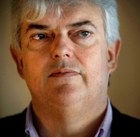
Xosé Manoel Núñez Seixas
Universidad de Santiago de Compostela
Academic Degrees
1984-1989: Study of History, Universities of Santiago de Compostela and Dijon (France).
December 1992: Ph. D. in History at the Department of History and Civilization of the European University Institute, Florence.
Academic positions
Full Professor (catedrático) of Modern History, Department of Late Modern and America’s History, University of Santiago de Compostela.
October 2012-September 2017: Full Professor of European Modern History, Ludwig-Maximilians University Munich.
Guest professorsips at the Guest researcher at the Universities of Rennes II, Paris VII, Paris X-Nanterre, City University of New York, Stanford University, University of Verona and National University of Mar del Plata (Argentina).
Member of the Editorial board of the journals Historia Social and Passato e Presente. Member of the Advisory Board of European History Quarterly (London) since 2004, Spagna Contemporanea, Ayer, Estudos Iberoamericanos and Historia del Presente, among others.
Vicepresident of the Council of Galician Culture since July 2018.
Spanish National Prize for Essays 2019 for his book Suspiros de España.
Research fields
European nationalist movements in comparative perspective; Galician, Basque and Catalan nationalisms; Nationality question in interwar Europe; Spanish nationalism in the 20th century and beyond; local, regional and territorial identities in Spain during the 19th and 20th centuries; cultural history of war and violence, with particular reference to the Spanish Civil War and the Russian front during the Second World War; Spanish migration to Latin America, 19th and 20th centuries, with particular reference to Galician migration to Argentina, return migration before 1936 and political mobilisation among migrant communities.
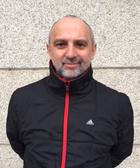
Alberto Pena Rodríguez
Universidad de Vigo
Alberto Pena Rodríguez is Professor of History of Communication and Propaganda at the University of Vigo, where he has served as dean, vice dean, and academic secretary of the Faculty of Social Sciences and Communication. He holds a European Doctorate in Information Sciences from the Complutense University of Madrid and a Doctorate in History (with special honors) from the UNED. He has been president of the Association of Communication Historians and director of the History Section of the Spanish Association for Communication Research. He has also been a visiting professor or researcher at various universities in the United States, France, Brazil, Italy, Portugal, and Spain, including Harvard University, the University of California Berkeley, Brown University, and the University of Massachusetts Dartmouth. With more than 150 publications and several works translated into English and Portuguese, he is the author of monographs such as Salazar y Franco. La alianza del fascismo ibérico contra la España republicana: diplomacia, prensa y propaganda (2017) and News on the American dream. A history of the Portuguese press in the United States (2020). He has also published articles in numerous international scientific journals, including Media History, Radio Journal, Journal of Iberian & Latin American Research, and Journal of Spanish Cultural Studies. As a journalist, he worked as a correspondent for Televisión Española (TVE), El Correo Gallego, and Diario 16 de Galicia, as well as a weekly news analyst for Galicia's public radio station, the Radio Galega.
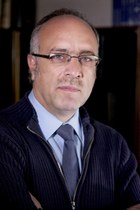
Pablo Sapag Muñoz de la Peña
Universidad Complutense de Madrid
Dr. Pablo Sapag is an Associate Professor at the Department of Journalism & Global Communication at Universidad Complutense de Madrid. He researches and teaches war and political propaganda and also war journalism. He has published several articles and books, among others, Siria en perspectiva (Ediciones Complutense, 2017, 2019) and Chile, frente de combate de la Guerra civil Española (UNED, 2003). He mainly focuses on Syria and Chile, their politics and the propaganda strategies of those actors involved in those two countries. He has been a visitor professor at the Universidad de Chile, Universidad Católica de Chile and under the Erasmus scheme, at Sussex University and Aristotelio University of Thessalonica. He has directed several PhD. thesis and has been involved in different competitive and international research projects. Previously he worked as a war correspondent and international news journalist for Telemadrid. He is a regular analyst and commentator about his matters of study in Spanish, Latin American and European media. He is also member of the scientific networks War and the Media and Asociación de Historiadores de la Comunicación Social.
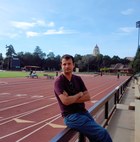
Luis Velasco Martínez
Universidad de Santiago de Compostela
Luis Velasco has specialised in the analysis of nationalist movements, particularly in state and parastatal nation-building agencies from a historiographic perspective in relation to politology. In addition, he has made numerous contributions in the field of teaching history and scientific dissemination. In general, his main research areas are focused on the field of contemporary political history and the nationalism history in the contemporary history, where he has used sources and methodology from the field of military and violence history. He has been a researcher in the area of Teaching of the Social Sciences of the USC, as well as in the Department of Contemporary and American History of the same institution; he has subsequently been assistant professor at some universities like Pablo de Olavide (Seville) and Malaga. Nowadays is assitant professor of Contemporary History at the University of Vigo and visiting researcher in the École des Hautes Études Hispaniques et Ibériques. He has previously been a visiting researcher at the Center for Latin American Studies at Columbia University in the City of New York, at Barnard College, Center for War Studies at University College Dublin, etc.
Among his latest publications it is important to mention:
-Velasco Martínez, Luis: “Falangistas y franquistas en América (1936-1975): un estado de la cuestión”, Historia 396, Vol. 9, Nº2, 2019, pp.1-18.
-Velasco Martínez, Luis: “¿Uniformizando la Nación? El servicio militar obligatorio durante el franquismo”, Historia y Política: Ideas, procesos y movimientos sociales, Nº38, 2017, 57-89.
-Velasco Martínez, Luis: “El parlamento largo de Sagasta y la Cuestión social: la reforma non nata de Cassola”, del Valle Villar, J.M. (Coord.) Práxedes Mateo Sagasta. Presidente del Consejo de Ministros de España. Política y Cuestión social (1874-1902), Madrid, CINCA, 2017, pp.77-96.
-Velasco Martínez, Luis (Coord.): Juventud y violencia en la historia. Del mundo antiguo al mundo actual, Santiago de Compostela, Valedor do Pobo, 2014.
-Velasco Martínez, Luis (et alii): Historia Cotemporánea Universal, Barcelona, Edebé, 2015.
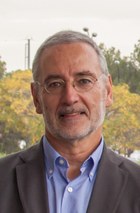
Pere Ysàs Solanes
Universitat Autónoma de Barcelona
Pere Ysàs is a professor of Contemporary History in the Department of Modern and Contemporary History at UAB. He is coordinador of the Research Group on Francoist Era (Grup de Recerca sobre l’Època Franquista, GREF). GREF is a member group of CEDID (Centre d’Estudis sobre Dictadures I Democràcies) a UAB Study and Research Center that was also under the direction of Pere Ysàs from 2007 to 2011.
He has specialized in the political and social history of the Francoist period and the transition to democracy. Hi is the author of Disidencia y subversión. La lucha del régimen franquista por su supervivencia 1960-1975 (2004) and, in collaboration with Carme Molinero, of L’oposició antifeixista a Catalunya 1939-1950 (1981); “Patria, Justicia y Pan”. Nivell de vida i condicions de treball a Catalunya, 1939-1951 (1985); Els industrials catalans durant el franquisme(1991); El règim franquista. Feixisme, modernització i consens (1992, 2003); Productores disciplinados y minorías subversivas. Clase obrera y conflictividad laboral en la España franquista (1998); Catalunya durant el franquisme(1999); La anatomía del franquismo. De la supervivencia a la agonía, 1945-1977 (2008); Els anys del PSUC. El partit de l’antifranquisme (1956-1981) (2010); La cuestión catalana. Cataluña en la transición espanyola (2014); De la hegemonía a la autodestrucción. El Partido Comunista de España (1956-1982) (2017) and La transición. Historia y relatos (2018).
He is also a coauthor of Historia Política de España, 1939-2000 (2001). He has been the director or editor of several works, such as: La transició a Catalunya i Espanya (1997); De la dictadura a la democràcia, 1960-1980, volume 11 of Història. Política, Societat i Cultura dels Països Catalans (1998); La configuració de la democràcia a Espanya(2009); Construint la ciutat democràtica. El moviment veïnal durant el tardofranquisme i la transició (2010); and Las izquierdas en tiempos de transición (2016).